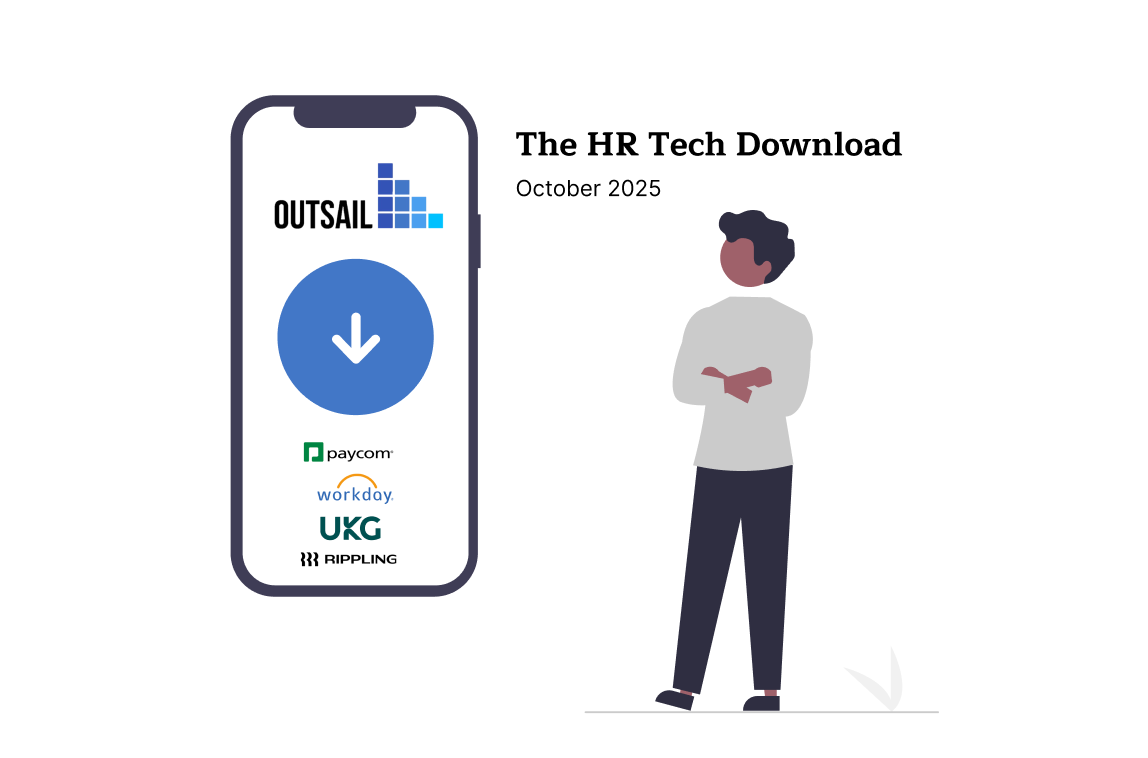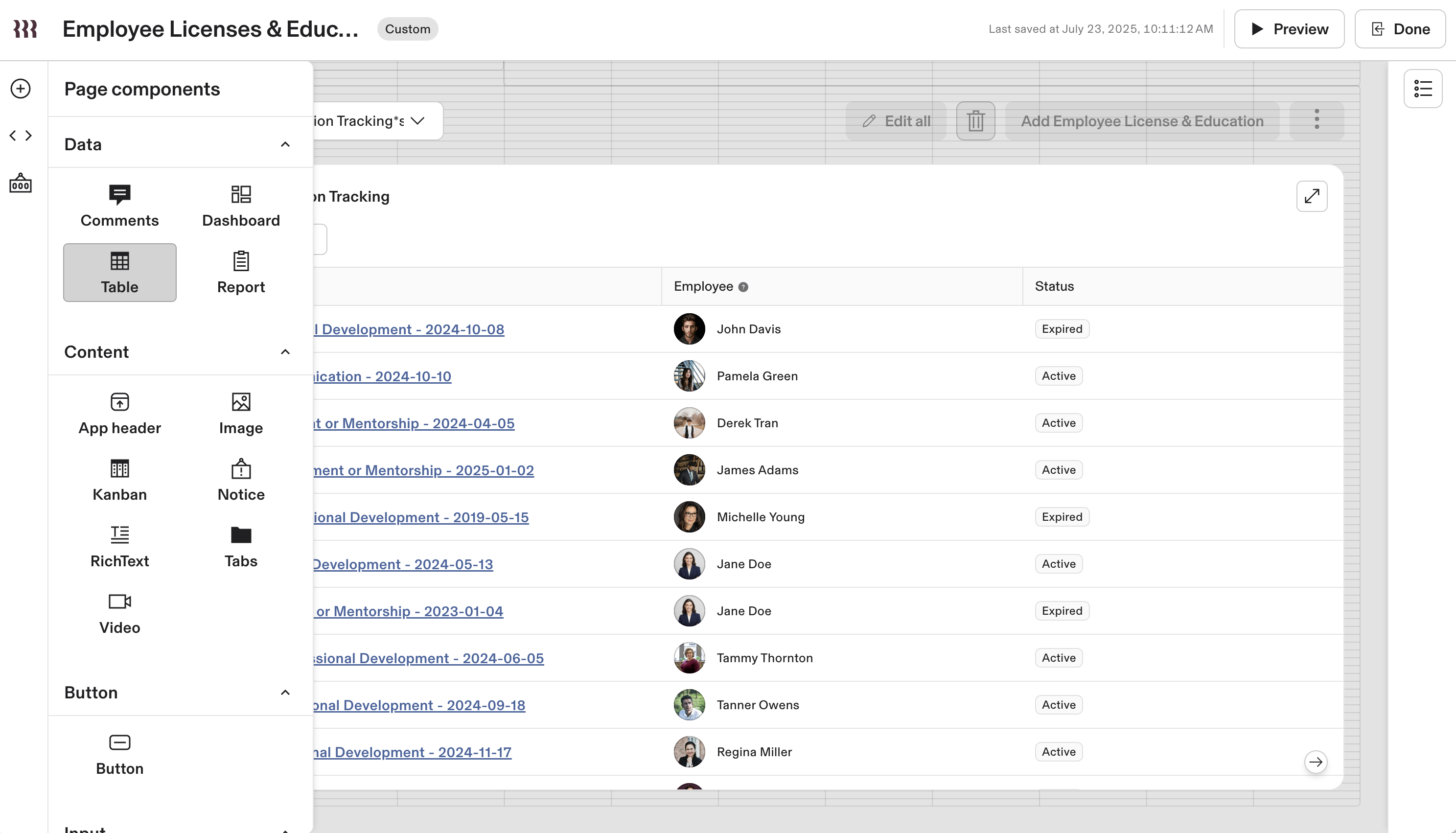Q4 HR Tech roundup: Paycom layoffs tied to AI, UKG rebrand, Rippling App Studio, Workday AI buys, Sage-Criterion deal—why it matters.

Q4 showed up with caffeine and a calendar full of headlines. Get ready for a jam-packed HR Tech roundup.
From layoffs framed as “AI progress” to vendors reinventing their platforms and brand stories, there’s a lot to parse.
Here are five stories we’re watching and why they matter:
What’s happening:
Paycom cut more than 500 roles, with layoffs centered around non-client-facing teams. The company's announcement says the affected roles were already automated, and customers will not be impacted.
Why it matters:
Paycom's spin on these layoffs doesn't pass the sniff test. Most of the Fortune 500 is quietly scaling back AI automation projects as they're hitting reliability walls; current models appear to lack the context and memory to truly replace high-value, human work.
So either:
We’ll be watching how quickly service metrics and product velocity move in the next two quarters.
What’s happening:
UKG launched a global rebrand and a campaign called “When Work Works, Everything Works.” The campaign tries to change the narrative from 'human capital management system' to 'workforce operating platform'. The splashy rollout was even narrated by Adam Scott from “Severance” (or "Parks and Rec", if you prefer a more upbeat workplace association).
Why it matters:
While the creative is fun and the AI narrative is aspirational, UKG’s current momentum is coming from execution - not splashy ads or Wall Street-approved AI copy.
Since UKG hit rock bottom with their botched layoffs in mid-2024, service consistency has improved, they've gotten more selective about where UKG Pro fits, and the market is feeling the difference. The recent operational discipline, more than branding, is what’s rebuilding confidence.
What’s happening:
Rippling introduced App Studio, a build-your-own business app layer that taps into Rippling’s employee graph data, approvals, forms and workflows. In short, you can ship internal tools native to your HRIS rather than duct-taping spreadsheets and one-off automations.
Why it matters:
Every company shares a baseline common core of HR processes; then comes a long tail of messy, highly specific workflows. Historically that tail gets handled with checklists, triggers and workflows.
App Studio points to a different future where non-technical teams quickly stand-up mini apps that read from the system of record, honor permissions and run in the same UI employees already know. If Rippling executes, expect peers to follow with their own low-code builders.

What’s happening:
Workday completed its acquisition of Paradox, the conversational recruiting platform. It is one of several AI-forward additions Workday has made this year as it sharpens the story around intelligent experiences across HR and finance.
Why it matters:
It’s a bit surprising to see Workday lean this hard into AI-by-acquisition. Given Workday’s long-standing strength in unified data models and tight platform control, you’d expect more homegrown AI built natively into the stack.
The shopping spree has us speculating that their ongoing ATS lawsuit may be nudging Workday to diversify its bets and timelines rather than rely on a single, internally incubated path.
What’s happening:
Sage is buying Criterion, a well-regarded boutique HRIS with strong mid-market traction and native links to Sage's ERP systems. The acquistion continues to build on one of 2025's biggest themes: The converence of Finance and HR systems.
Why it matters:
Boutique HCMs are becoming an endangered species.
Criterion filled an important gap in the HRIS market - strong functionality and exceptional support for companies who value partnership over polish. But smaller, more regional players continue to face the same headwinds: limited scale and, therefore, stability. We’ve seen it before: Ascentis (acquired by UKG), PrimePay (bought by CoAdvantage), and now Criterion.
It’s another reminder that in HR Tech, the middle market keeps consolidating - and the biggest players aren’t just building the future, they’re buying it.
